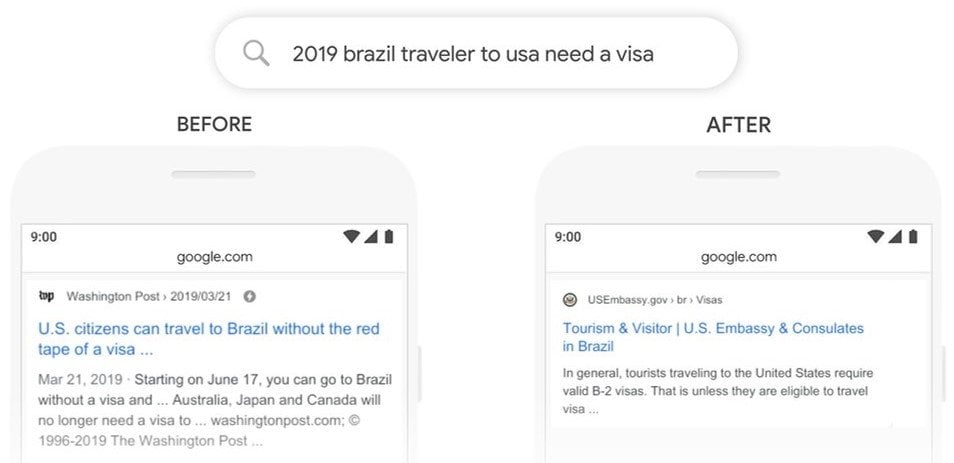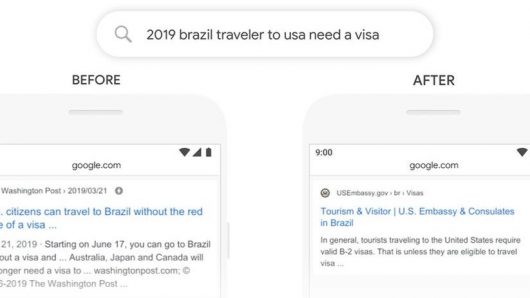Many of us remember the lovable stickler Bert – Ernie’s long-suffering roommate and friend of pigeons – from our childhood years watching Sesame Street. Several days ago, Google introduced a different, algorithmic BERT.
Also a stickler, the Google BERT algorithm update brings organic search one step closer to understanding the relevance and intent behind its searchers’ queries.
How the Google BERT Update Works
BERT, an acronym that stands for Bidirectional Encoder Representations from Transformers, is the open-source, natural-language technology that Google developed to better understand the relationship between all words in a search query.
Previously, Google processed the words in every search query in the order in which it encountered them, from left to right. Their BERT update applies bidirectional processing to determine the meaning behind the words in relation to each other, regardless of the order in which they’re used in the query.

Google’s announcement used the example above illustrate to explain the improvement. Before their BERT update, Google would not have picked up on the importance of the preposition “to” in the search query “2019 brazil traveler to usa need a visa.” As a result, the search results erroneously listed information for travelers both to the United States and to Brazil. With the BERT update in place taking into account the importance of the word “to,” the top results now show information for travel to the U.S. from Brazil, as the searcher requested.
What Google BERT Means for Search
While Google says that the BERT update will influence about 10% of the U.S. English search queries it processes, it only applies to organic web search and featured snippets at this point.
That means that it does not impact the following:
- The other 90% of U.S. English organic search queries.
- Other organic search channels like news and image search.
- Paid search results.
- Search results in other countries.
- Search results in other languages than English.
Apparently, the BERT algorithm update requires so much additional computing power that Google’s traditional hardware wasn’t sufficient to handle it. They reportedly had to use cutting-edge Cloud TPUs to serve the mere 10% of search results they’ve applied BERT to now.
For queries processed with Google BERT, the impact will be seen on longer, more conversational queries – in essence, the long-tail queries.
For businesses, BERT represents an opportunity for Google to deliver more relevant traffic to their sites. If you have complex products or services that are “for” certain types of customers, only apply “to” certain applications, or are available “with” multiple options, BERT may improve Google’s ability to drive the right customers to the right content.
It’s far too early to tell what the Google BERT update’s impact will be – we typically don’t see trends until several weeks after the results settle into their new shapes after an algorithm update.
On the other hand, we may not be able to track the changes at a granular level. Most search ranking tracking software is based on measuring the changes to specific keywords, and the keywords they focus on tend to be the ones that drive larger amounts of traffic. Since BERT will be impacting the long-tail search queries that tend to drive only a handful of searches per month or year, the impact to specific keyword phrases may fly under our SEO radars.
Regardless, since long-tail queries tend to drive high volumes of traffic in aggregate, we should see the impact in web analytics for the overall organic search channel as well.
The Google BERT algorithm update represents a great opportunity for Google to serve more relevant search results to searchers, which should also have a positive affect on the conversion rates for the organic search traffic our sites receive. Keep doing the right things right on your site – like creating experiences focused on the customer wants, developing it in a way that search engines can understand, and promoting it so that more customers find and enjoy it – and Google BERT should be as friendly to you as the Muppet Bert is to his pal, Ernie.




